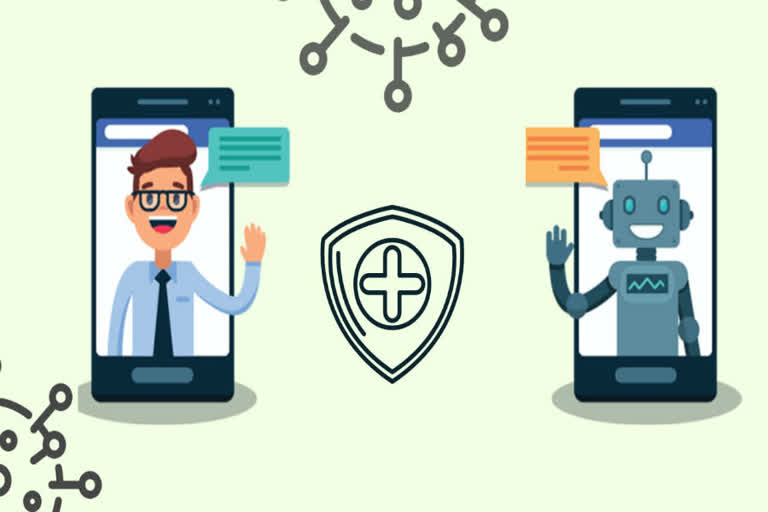Bloomington, Ind: In order to reduce the burden on the medical providers, researchers from the Indiana University Kelley School of Business found that chatbots can serve as an option in providing guidance related to COVID-19.
371 participants viewed COVID-19 screening session, hotline agent -- chatbot or human -- and a user with mild or severe symptoms. The researcher's further studies whether chatbots provided satisfying information. The response of the users was positive for chatbots as compared to the human agents. This serves as good news for health care organizations struggling to meet user demand for screening services.
Also Read: Programmable balloons pave the way for new shape-morphing devices
The primary factor driving user response to screening hotlines -- human or chatbot -- is perceptions of the agent's ability," said Alan Dennis, the John T. Chambers Chair of Internet Systems at Kelley and corresponding author of the paper, "User reactions to COVID-19 screening chatbots from reputable providers."
"When the ability is the same, users view chatbots no differently or more positively than human agents." Other authors on the paper, forthcoming in the Journal of the American Medical Informatics Association.
"Chatbots are scalable, so they can meet an unexpected surge in demand when there is a shortage of qualified human agents," Dennis, Kim, and their co-authors wrote, adding that chatbots "can provide round-the-clock service at a low operational cost.
"This positive response may be because users feel more comfortable disclosing information to a chatbot, especially socially undesirable information because a chatbot makes no judgment," researchers wrote. "The CDC, the World Health Organization, UNICEF and other health organizations caution that the COVID-19 outbreak has provoked social stigma and discriminatory behaviors against people of certain ethnic backgrounds, as well as those perceived to have been in contact with the virus. This is truly an unfortunate situation, and perhaps chatbots can assist those who are hesitant to seek help because of the stigma."
A chatbot is a software application that conducts online chats via text or text-to-speech. Even before the pandemic, chatbots were identified as a technology that could speed up how people interact with researchers and find medical information online.
Also Read:George Eastman invented the first Kodak camera, helping make photography accessible to the public



